Table of Contents
Business Bank Account Fee Comparison 2025
The business banking landscape continues to evolve in 2025, with providers competing to offer competitive fee structures. We’ve analyzed dozens of business bank accounts to identify those with the lowest overall fees, considering monthly charges, transaction costs, and additional services.
| Bank Name | Monthly Fee | Free Transaction Allowance | Cash Deposit Fee | International Payment Fee |
| Virgin Money M Account | £0 | Unlimited | 0.65% (Post Office) | £15 (non-SEPA) |
| Tide Free Account | £0 | None (20p per transfer) | £1 (Post Office) | 0.5% + £3 |
| Co-operative Bank Business | £0 | Unlimited | 0.75% (Post Office) | £15 |
| Monzo Lite Business | £0 | Unlimited | £1 (Post Office) | 0.3% |
| Revolut Basic Business | £10 | 10 per month | N/A | Free up to £1,000/month |
Ready to find your ideal business account?
Compare the top business bank accounts with the lowest fees and apply online in minutes.
How We Ranked These Business Bank Accounts
Our comprehensive ranking methodology considers multiple factors beyond just the headline fees. We’ve evaluated each account based on:
Fee Structure Analysis
- Monthly account maintenance fees
- Transaction charges (payments in/out)
- Cash handling fees
- International payment costs
- ATM withdrawal charges
Additional Criteria
- Digital banking features and app quality
- Customer support availability
- Account opening requirements
- Integration with accounting software
- FSCS protection status
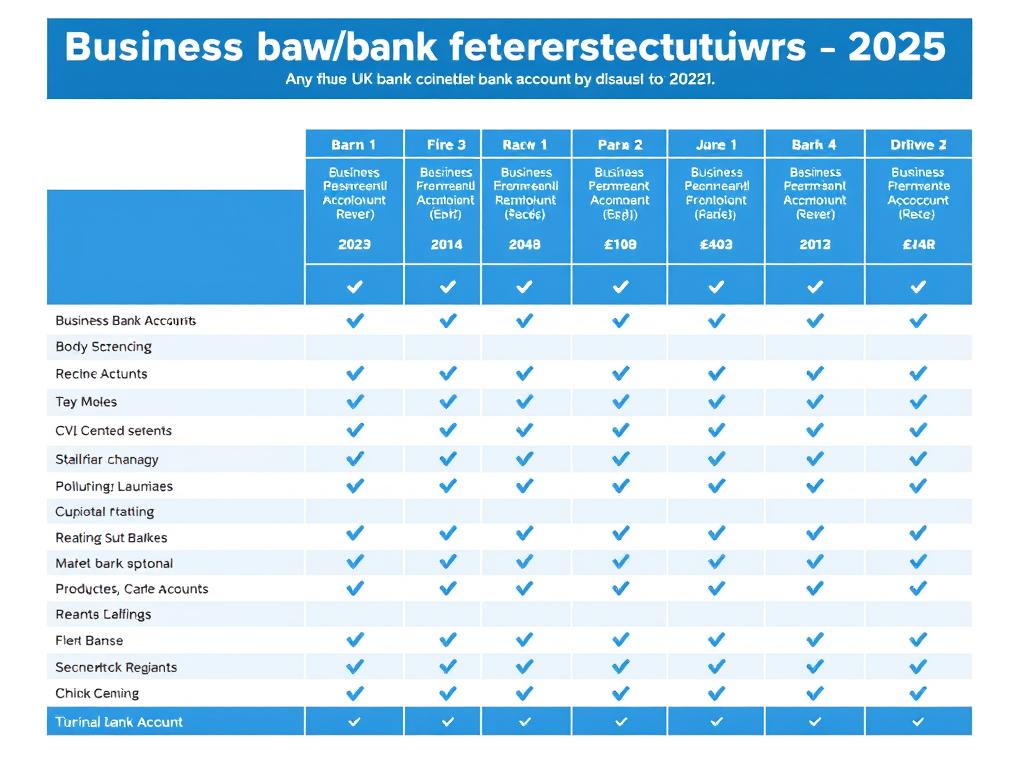
Top 5 Business Bank Accounts with Lowest Fees (2025)
After thorough analysis, these five accounts stand out for their exceptional value, combining low fees with useful features for UK businesses in 2025.
1. Virgin Money M Account for Business
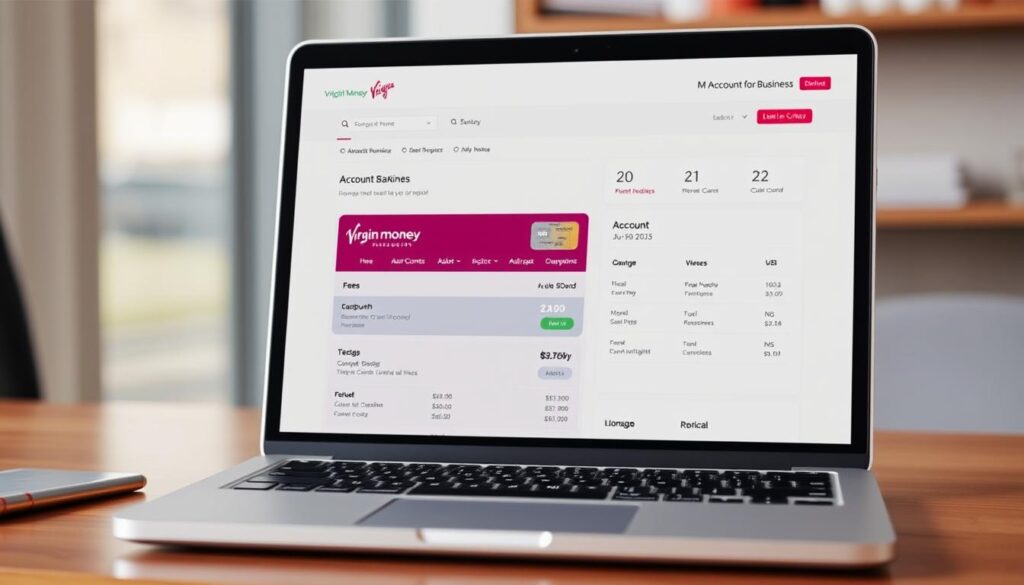
The Virgin Money M Account for Business tops our list for 2025 with its combination of zero monthly fees and unlimited free day-to-day online business banking. Designed for businesses with annual turnover under £1 million, this account offers exceptional value.
| Feature | Details |
| Monthly Fee | £0 |
| Transaction Fees | Free day-to-day online banking |
| Cash Deposits | 0.65% at Post Office |
| Unique Perk | 0.25% cashback on debit card purchases |
| Accounting Integration | QuickBooks, Xero, Sage |
Pros
- No monthly account fee
- Free day-to-day online transactions
- 0.25% cashback on debit card purchases
- Integration with major accounting software
- Expert mentoring from Virgin Startup
Cons
- Limited to businesses with turnover under £1 million
- CHAPS and international payments incur fees
- Cash handling fees apply
- Limited branch network
2. Co-operative Bank Business Bank Account
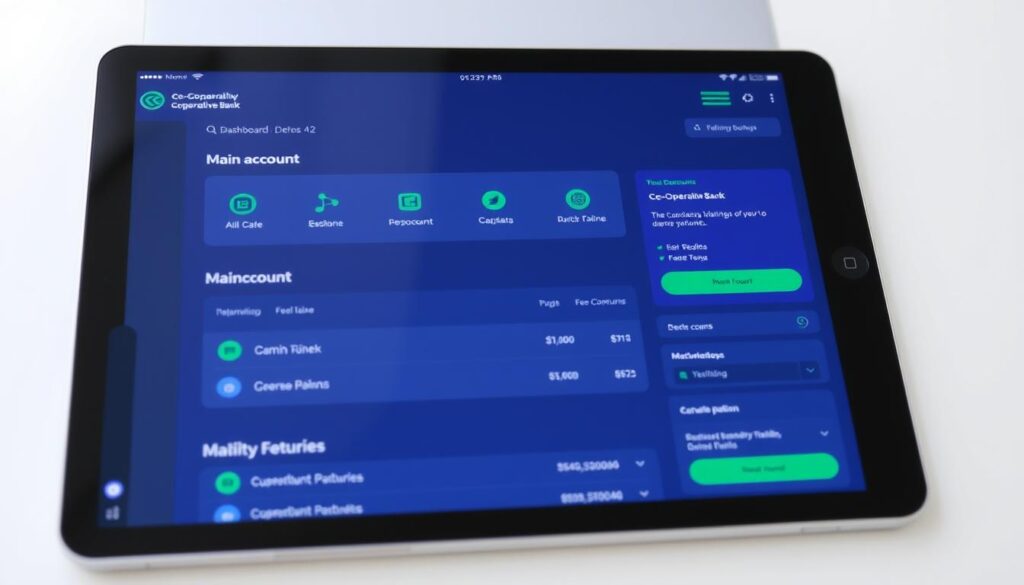
The Co-operative Bank’s Business Bank Account stands out for its ethical banking approach combined with zero monthly fees and free basic UK transactions. It’s particularly well-suited for charities and community organizations while offering excellent value for all business types.
| Feature | Details |
| Monthly Fee | £0 |
| Transaction Fees | Free basic UK transactions |
| Cash Deposits | 0.75% at Post Office |
| Unique Perk | Access to Clover payment terminals (£1/month for first year) |
| Accounting Integration | Sage, Xero, QuickBooks |
Pros
- No monthly service fee
- Free basic transactions
- Ethical banking policy
- Excellent options for charities
- Multiple account management options (online, app, branch)
Cons
- Average of 10 days to open an account
- No branches in Northern Ireland
- International payment fees relatively high
- Limited promotional offers
3. Tide Free Business Account
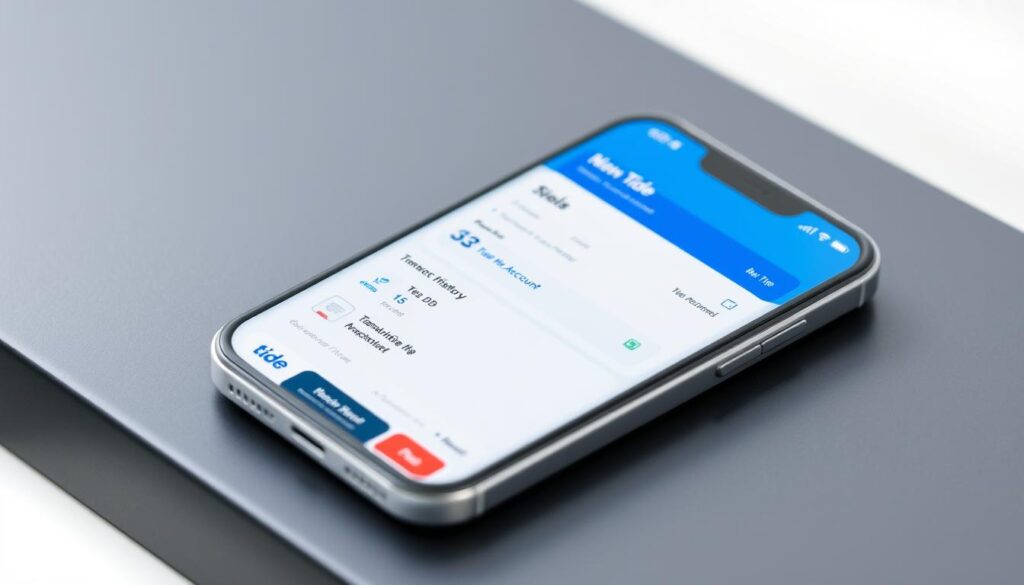
Tide’s Free Business Account offers a digital-first approach with no monthly fees and rapid account opening. While it charges 20p per transfer, its integrated tools for invoicing and expense management provide excellent value for small businesses and sole traders.
| Feature | Details |
| Monthly Fee | £0 |
| Transaction Fees | 20p per transfer |
| Cash Deposits | £1 at Post Office |
| Unique Perk | Free Instant Saver account with up to 4% AER |
| Accounting Integration | QuickBooks, Sage, Xero |
Pros
- No monthly fee
- Fast account opening (minutes)
- Excellent payment acceptance options
- Free instant saver account (up to 4% AER)
- Company registration for just £14.99
Cons
- 20p fee per transaction
- No physical branches
- Cash deposit fees relatively high
- Limited customer service options
4. Monzo Lite Business Account
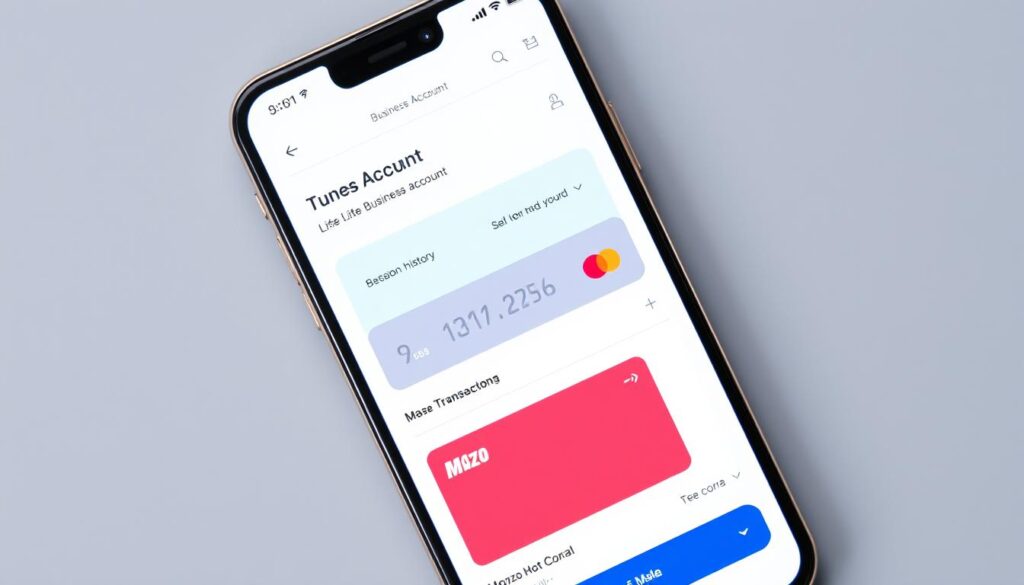
Monzo’s Lite Business Account combines a user-friendly mobile app with zero monthly fees and free basic UK transactions. Its digital-first approach and in-app tools make it ideal for sole traders and small limited companies who prefer managing finances on-the-go.
| Feature | Details |
| Monthly Fee | £0 |
| Transaction Fees | Free basic UK transactions |
| Cash Deposits | £1 at PayPoint locations |
| Unique Perk | 24/7 in-app customer support |
| Accounting Integration | None with Lite account (Pro version required) |
Pros
- No monthly fee
- Free basic transactions
- Excellent mobile app experience
- Same-day account opening for 90% of customers
- 24/7 in-app customer support
Cons
- No phone or branch banking
- Not available for charities or partnerships
- No accounting software integration with Lite account
- Limited business-specific features
5. Cynergy Bank Business Current Account
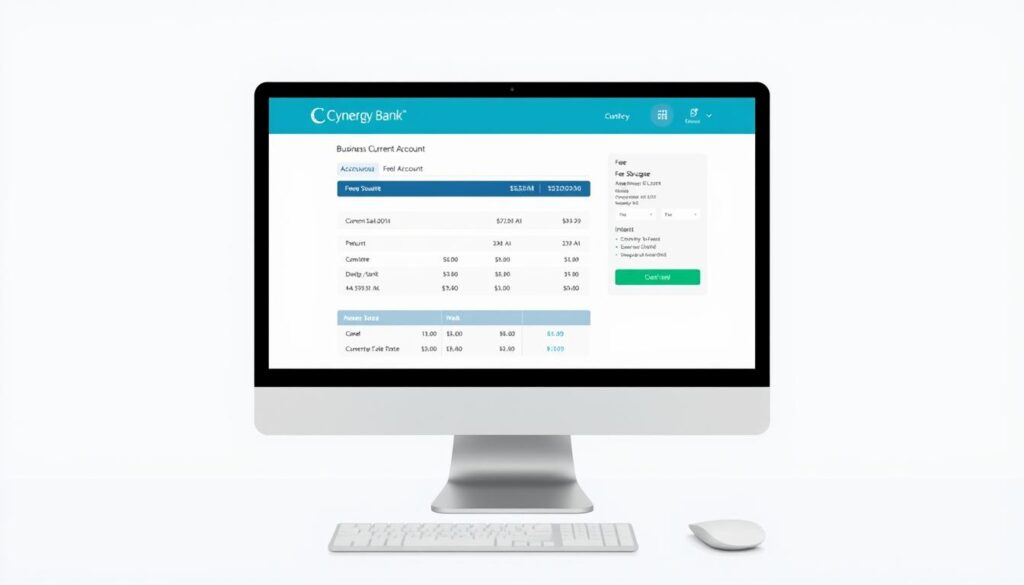
Cynergy Bank’s Business Current Account offers 12 months of free banking followed by a low £5 monthly fee. What sets it apart is the ability to earn interest on your current account balance, making it an excellent choice for businesses with higher average balances.
| Feature | Details |
| Monthly Fee | £0 for 12 months, then £5 |
| Transaction Fees | Free unlimited standard transactions |
| Cash Deposits | 65p per £100 at HSBC branches |
| Unique Perk | Interest-earning current account (3.5% AER) |
| Accounting Integration | None |
Pros
- Free for the first year
- Earn 3.5% interest on current account balance
- Unlimited free transactions
- Same-day account setup possible
- Free cheque deposits
Cons
- £5 monthly fee after first year
- No integration with accounting software
- Mobile app has mixed reviews
- Limited digital features compared to competitors
Find your perfect business bank account
Compare features, fees and benefits to choose the right account for your business needs.
Choosing the Right Business Bank Account by Business Type
Different business structures have unique banking needs. Here’s our guidance on selecting the most suitable low-fee business bank account based on your company type.
Sole Traders

As a sole trader, you’re not legally required to have a separate business account, but it’s highly recommended for easier tax management and professional appearance.
Best Options:
- Tide Free Business Account
- Monzo Lite Business Account
- Starling Business Account
Key Features to Look For: No monthly fees, easy mobile banking, minimal transaction charges, and simple expense tracking.
Limited Companies

Limited companies legally require a dedicated business bank account. Your focus should be on finding an account that balances low fees with features that support growth.
Best Options:
- Virgin Money M Account for Business
- Co-operative Bank Business Account
- Cynergy Bank Business Current Account
Key Features to Look For: Accounting software integration, multiple user access, overdraft facilities, and reasonable international payment fees.
Startups & New Businesses

New businesses benefit from accounts with introductory offers, minimal initial fees, and tools to support early growth stages.
Best Options:
- NatWest Startup Business Account
- Tide Free Business Account
- Barclays Business Account
Key Features to Look For: Extended fee-free periods, business support services, integrated invoicing tools, and minimal opening requirements.
Did You Know?
According to the Financial Conduct Authority (FCA), businesses can save an average of £549 annually by switching to a more suitable business bank account. Yet only 4% of UK businesses switched their account in 2024.
Future Trends in Business Banking Fees (2025-2026)
The business banking landscape continues to evolve, with several emerging trends affecting fee structures in 2025 and beyond.

AI-Driven Personalized Pricing
Banks are increasingly using artificial intelligence to analyze business transaction patterns and offer customized fee structures. In 2025, we’re seeing more providers implement dynamic pricing models that adjust based on your specific banking behaviors rather than one-size-fits-all fee schedules.
Sustainability-Linked Fee Discounts
Several UK banks have introduced fee reductions for businesses demonstrating sustainable practices. This trend is expected to grow throughout 2025-2026, with discounts of 5-15% on monthly fees for businesses meeting specific environmental criteria or participating in carbon reduction programs.
Bundled Service Packages
Rather than charging for individual services, more banks are offering bundled packages that combine banking, accounting, invoicing, and payment processing for a single predictable fee. This approach provides better value for businesses while simplifying fee structures.
Open Banking Fee Innovations
The continued expansion of open banking in the UK is creating new fee models based on API access and third-party service integration. Some banks are now offering reduced fees for businesses that utilize their open banking partnerships for accounting, invoicing, and financial management.
“The business banking market is undergoing a fundamental shift from standardized fee structures to more personalized, usage-based pricing models. This trend benefits businesses that actively manage their banking relationships and leverage digital tools.”
FCA Regulations Impacting Business Bank Account Fees in 2025
Recent Financial Conduct Authority (FCA) regulations have significantly influenced business banking fees and practices in the UK. Understanding these changes can help you make more informed decisions about your business banking.

Enhanced Fee Transparency
The FCA’s 2024 Business Banking Transparency Initiative, fully implemented in 2025, requires banks to provide standardized fee information in a consistent format. This makes it easier to compare accounts and understand exactly what you’ll pay.
Banks must now publish an annual summary of all fees charged to business customers, including previously hidden costs like payment processing fees and account maintenance charges.
SME Banking Protection
New regulations extending the Financial Ombudsman Service’s remit now allow businesses with up to 50 employees and £10 million annual turnover to file complaints about banking services.
This increased protection has encouraged banks to improve their fee structures and service quality for small and medium-sized businesses, resulting in more competitive offerings in 2025.
Open Banking Enhancements
The FCA’s continued support for open banking has led to new regulations requiring banks to provide easier API access for third-party financial services.
This has created more competition in the business banking sector, with traditional banks reducing fees to compete with fintech challengers that leverage open banking for streamlined services.
Important Regulatory Update
From October 2025, the FCA will implement new rules requiring business account providers to notify customers 60 days before any fee increases or changes to terms and conditions. This gives businesses more time to compare alternatives and potentially switch providers before changes take effect.
Additional Low-Fee Business Bank Accounts Worth Considering
Beyond our top 5 recommendations, these business accounts also offer competitive fee structures and valuable features for UK businesses in 2025.
| Bank Name | Monthly Fee | Free Transaction Allowance | Unique Perk | Best For |
| Starling Business Account | £0 | Unlimited | Spaces for organizing finances | Digital-first businesses |
| NatWest Startup Business | £0 for 24 months | Unlimited for 24 months | Free FreeAgent accounting | New businesses under 1 year old |
| Barclays Business Account | £0 for 12 months, then £8.50 | Unlimited for 12 months | Free FreshBooks accounting | Businesses needing support |
| Allica Bank Business Rewards | £0 | Unlimited | Up to 1.5% cashback on card spend | High card spending businesses |
| Zempler Bank Business Go | £0 | 3 per month | No credit checks | Businesses with poor credit |
Ready to open a business account?
Compare all available options and apply online today.
How to Select the Right Low-Fee Business Bank Account
Finding the perfect business bank account involves more than just comparing headline fees. Follow these steps to make an informed decision based on your specific business needs.

- Analyze Your Transaction Patterns
Review your typical monthly transactions, including payments in/out, cash handling, and international transfers. Choose an account with fee structures that align with your specific usage patterns. - Consider Growth Projections
Select an account that can accommodate your business as it grows. Some accounts with low initial fees may become expensive as transaction volumes increase. - Evaluate Digital Banking Features
In 2025, robust mobile and online banking capabilities are essential. Prioritize accounts with user-friendly interfaces, comprehensive app functionality, and useful digital tools. - Check Integration Capabilities
Ensure the account integrates with your accounting software, payment processors, and other financial tools to streamline operations and reduce administrative work. - Assess Customer Support Options
Consider how and when you can access support. Some businesses prefer in-branch services, while others prioritize 24/7 digital support channels. - Review Eligibility Requirements
Verify that your business structure, turnover, and trading history meet the account’s eligibility criteria before applying. - Read the Fine Print
Pay attention to details like notice periods for fee changes, minimum balance requirements, and charges for exceeding transaction limits.
Important Consideration
When comparing business bank accounts, always calculate the total cost of ownership based on your specific usage patterns. An account with no monthly fee but high transaction charges could end up more expensive than one with a modest monthly fee but free transactions.
Frequently Asked Questions About Business Bank Account Fees
Can I use a personal account for my business to avoid fees?
While sole traders aren’t legally required to have a business bank account, limited companies and partnerships must have a separate business account by law. Even for sole traders, using a personal account for business purposes typically violates the account’s terms and conditions and can create complications with tax reporting, accounting, and building business credit. Most banks now offer free or low-fee business accounts that provide better value and appropriate features for business use.
Are business bank accounts protected by the FSCS?
Yes, most business bank accounts are protected by the Financial Services Compensation Scheme (FSCS) up to £85,000 per banking group. This protection applies to small businesses with an annual turnover of less than £1 million and fewer than 10 employees. Larger businesses may still be eligible for FSCS protection, but the criteria are more stringent. It’s worth noting that some digital providers are not banks but e-money institutions, which protect funds through different mechanisms rather than the FSCS.
How can I switch my business bank account to a lower-fee option?
The Current Account Switch Service (CASS) makes it easy to switch business bank accounts. If your business has fewer than 50 employees and annual turnover under £6.5 million, you can use this free service to move your account, including all payments, direct debits, and standing orders. The process typically takes 7 working days, and your new bank handles all the details. Many banks also offer switching incentives, such as extended fee-free periods or cash bonuses, to attract new business customers in 2025.
What hidden fees should I watch out for with business bank accounts?
When comparing business bank accounts with lowest fees in the UK for 2025, be alert to these potential hidden charges:
- Unarranged overdraft fees (these can be substantially higher than arranged overdraft rates)
- Foreign transaction fees and exchange rate markups
- CHAPS payment charges for same-day transfers
- Cash and cheque handling fees
- Charges for exceeding transaction limits
- Account maintenance fees that kick in after introductory periods
- Fees for ordering physical statements or additional debit cards
Always request a full fee schedule before opening an account to understand all potential charges.
Can I negotiate business bank account fees?
Yes, business bank account fees are often negotiable, especially for established businesses with good financial standing. In 2025, with increased competition in the business banking sector, banks are more willing to customize fee structures to attract and retain valuable customers. Consider approaching your bank with competitive offers from other providers, demonstrating your business’s growth potential, or negotiating based on your expected transaction volume. Some banks also offer relationship pricing, reducing fees when you use multiple products or maintain certain balance levels.
Conclusion: Finding Your Ideal Low-Fee Business Bank Account
Selecting the right business bank account with the lowest fees for your UK business in 2025 requires careful consideration of your specific needs, transaction patterns, and growth plans. While our top recommendations provide excellent starting points, the best account for your business will depend on your unique circumstances.
Take advantage of the increasingly competitive business banking market by comparing options thoroughly, understanding all fee structures, and leveraging new digital features that can streamline your financial management. Remember that the lowest headline fee doesn’t always translate to the lowest overall cost – calculate the total expense based on your typical banking activities.
As regulatory changes continue to improve transparency and competition in business banking, stay informed about new offerings and be prepared to switch accounts if better options become available. With the right low-fee business bank account, you can minimize unnecessary expenses and focus your resources on growing your business.
Ready to find your perfect business bank account?
Compare the top business accounts with the lowest fees and apply online today.




